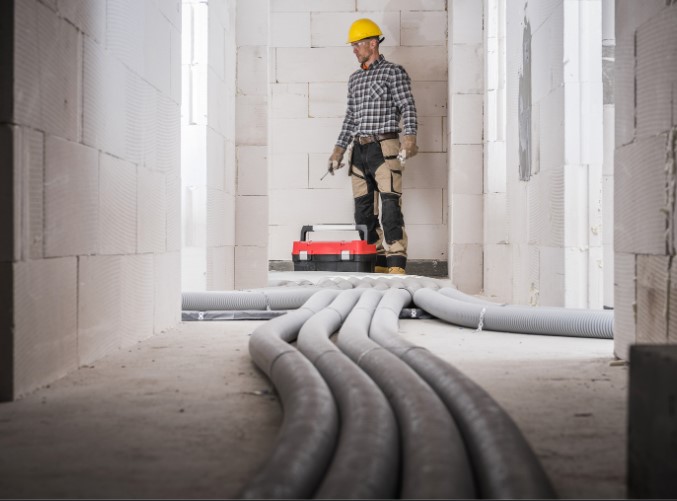
by Kanimozhi BV | Apr 1, 2025 | Floor, Interior
Underfloor heating (UFH) is an efficient as well as most comfortable way to heat your home. However, like any water-based heating system, air can get trapped in the pipes, causing reduced efficiency and uneven heating.
If your underfloor heating is not working properly, has cold spots, or makes strange gurgling noises, it may be time to bleed the system.
In this guide, I’ll walk you through how to bleed underfloor heating step by step, ensuring your system runs smoothly and efficiently.
Why Does Underfloor Heating Need Bleeding?
Over time, air can become trapped in your UFH system, leading to several issues, including:
- Uneven heating – Some rooms or areas feel colder than others.
- Reduced efficiency – The system struggles to circulate warm water.
- Strange noises – Gurgling or bubbling sounds in the pipes.
- Higher energy costs – The boiler works harder to maintain temperature.
Bleeding your underfloor heating system removes these trapped air pockets, allowing hot water to circulate properly and ensuring optimal performance.
Before starting, gather the necessary tools to make the process easier:
- Adjustable spanner – To open and close valves.
- Flat-head screwdriver – For certain bleed points.
- Bleed key (if applicable) – Some systems require a bleed key.
- Towel or bucket – To catch any water that leaks out.
Tip: Always turn off the heating system before bleeding to avoid hot water splashes!
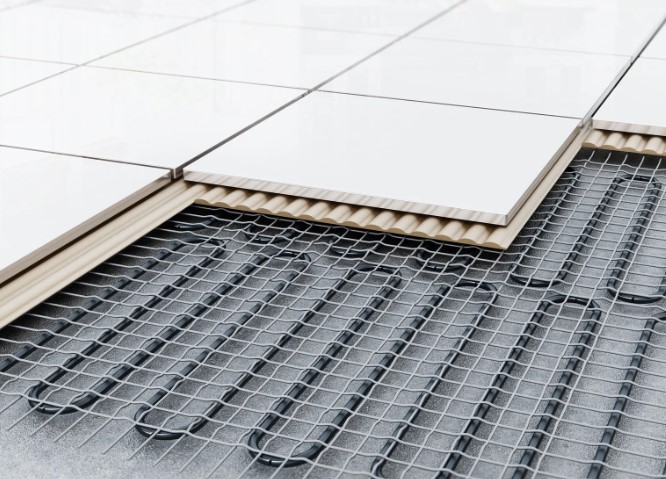
A Step-By-Step Guide On How to Bleed Underfloor Heating System?
Step 1 – Turn Off the Heating System
- Switch off the boiler or heat pump to prevent water circulation during bleeding.
- Wait for the system to cool down before proceeding.
Step 2 – Locate the Underfloor Heating Manifold
- The manifold is usually near the boiler or a central location.
- It consists of flow and return valves for different heating zones.
Step 3 – Open the Valves to Release Air
- Start with one zone at a time to avoid pressure imbalances.
- Slowly open the bleed valve or air vent until you hear a hissing sound.
- Keep the valve open until water flows steadily without bubbles.
Step 4 – Monitor the Water Flow
- The water may appear frothy or bubbly at first—this is normal.
- Once the water runs clear, close the valve firmly but not too tight.
Step 5 – Check the Boiler Pressure and Restart the System
- After bleeding, check the boiler pressure gauge—it should be between 1 and 1.5 bar.
- If the pressure is too low, refill the system using the filling loop.
- Turn the heating back on and test the system for even heat distribution.
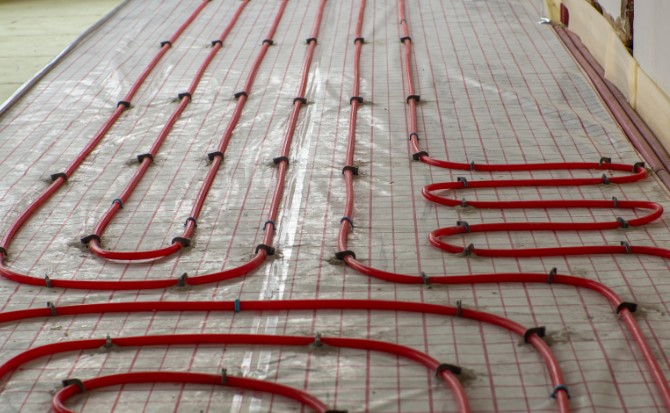
Common Problems When Bleeding Underfloor Heating & How to Fix Them?
| Problem |
Possible Cause |
Solution |
| No water coming out of the valve |
Low system pressure |
Check and increase boiler pressure |
| Cold spots remain after bleeding |
Air still trapped in pipes |
Repeat the process and bleed all zones |
| Boiler pressure drops too low |
Too much water released |
Refill and repressurise the system |
| Gurgling noises after bleeding |
Partial air pockets remain |
Bleed again and check pressure |
If your underfloor heating still isn’t working properly after bleeding, it may need a full system flush or professional servicing.

How Often Should You Bleed Underfloor Heating?
- At least once a year – Before winter to ensure efficiency.
- Whenever you notice cold spots – If certain areas aren’t heating properly.
- If the system makes noises – Gurgling or bubbling sounds indicate trapped air.
Conclusion
Bleeding your underfloor heating system is essential for maintaining efficient heating and even warmth throughout your home. By following these simple steps, you can eliminate airlocks, improve circulation, and reduce energy costs.
Regular maintenance ensures your UFH system runs smoothly, so don’t wait until winter—check and bleed your system now!
Related Article: Heat Pump Vs Condenser Dryer: Which One To Choose?
FAQs About Bleeding Underfloor Heating
1. Can I bleed underfloor heating myself, or do I need a professional?
Yes! Bleeding underfloor heating is a simple DIY task that you can do yourself. However, if problems persist after bleeding, it’s best to call a professional.
2. How long does it take to bleed an underfloor heating system?
It usually takes 10-30 minutes, depending on the number of zones in your system.
3.Will bleeding UFH improve my heating efficiency?
Yes! Removing trapped air improves circulation, heating performance, and reduces energy costs.
4. Do electric underfloor heating systems need bleeding?
No, electric underfloor heating does not require bleeding because it doesn’t use water.

by Kanimozhi BV | Mar 17, 2025 | DIY Ideas, Exterior, Interior
House clearance services provide an efficient solution for removing unwanted furniture, appliances, and waste from a property.
Whether you’re moving, decluttering, handling a deceased estate, or managing a hoarder cleanout, a professional clearance service can save you time and effort.
However, you have wonder how much does house clearance cost, pricing varies based on factors like property size, waste volume, and disposal requirements.
Some homeowners prefer to do it themselves, while others hire professionals for a quick and hassle-free experience.
What This Guide Covers?
- The cost of house clearance in 2025, including garage clearance costs.
- Factors that impact pricing, including hidden fees.
- Ways to reduce house clearance costs and even make money from unwanted items.
- How to choose a reputable clearance company and avoid scams.
- Whether charities offer house clearance services and how they work.
- A comparison of DIY vs. professional house clearance options.
By the end of this guide, you’ll have all the information needed to budget for house clearance and find the best service for your needs.
What is House Clearance and How Does It Work?
What is House Clearance?
House clearance is the process of removing furniture, appliances, personal belongings, and waste from a property.
This service is commonly used when selling a home, moving, or clearing a deceased estate.
Professional house clearance companies sort, remove, and dispose of items responsibly, often donating or recycling where possible.
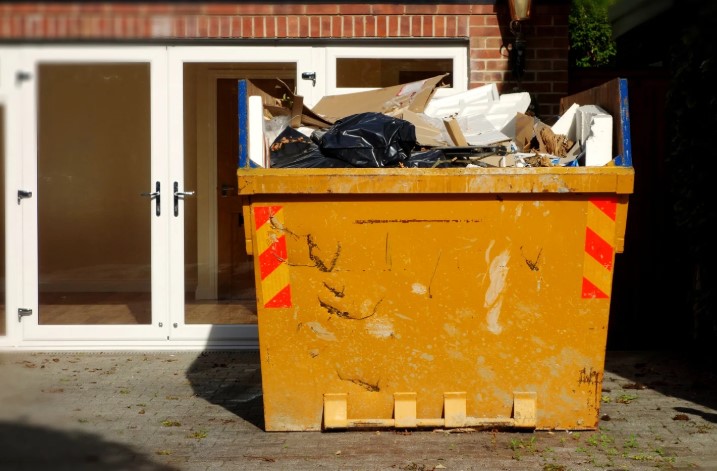
What are the Common Situations Requiring House Clearance?
People need house clearance services for a variety of reasons, including:
- Moving House – Removing unwanted furniture and belongings before relocating.
- Probate and Deceased Estates – Clearing a home after the passing of a loved one.
- Decluttering or Downsizing – Reducing excess possessions to free up space.
- End of Tenancy Clearance – Landlords or tenants removing furniture before handing over the property.
- Hoarder Cleanouts – Clearing excessive clutter and hazardous waste from a property.
How Does House Clearance Work?
The house clearance process usually involves these steps:
- Booking the Service – Get a quote based on the size of the clearance job.
- Assessment (if required) – Some companies offer a site visit to estimate costs.
- Collection and Removal – Professionals remove furniture, appliances, and waste.
- Sorting and Recycling – Items are sorted for donation, recycling, or disposal.
- Final Clean-Up – Some companies offer additional cleaning services after removal.
A licensed house clearance company ensures that waste is disposed of legally and in an environmentally responsible manner.
How Much Does House Clearance Cost in the UK?
What is the Average Cost of House Clearance in 2025?
House clearance costs depend on property size, waste amount, and location. Below is a general pricing guide:
| Property Size |
Average Cost (£) |
Time Required |
| 1-Bedroom Flat |
£150 – £400 |
2 – 4 hours |
| 2-Bedroom House |
£300 – £600 |
4 – 6 hours |
| 3-Bedroom House |
£500 – £900 |
6 – 8 hours |
| 4-Bedroom House |
£700 – £1,200 |
8+ hours |

Prices can be higher in London and South East England due to increased labour and disposal fees.
How Much Does Garage Clearance Cost?
Garage clearance costs depend on size, waste type, and accessibility.
| Garage Size |
Average Cost (£) |
| Small Garage (Single Bay) |
£100 – £300 |
| Medium Garage (Double Bay) |
£250 – £500 |
| Large Garage (Workshop-Size) |
£400 – £800 |
Factors that increase garage clearance costs include hazardous waste disposal (e.g., paint, oil, chemicals).
What are the Factors That Affect House Clearance Pricing?
- Amount of waste – More items mean higher labour and disposal costs.
- Labour fees – Large properties require more workers.
- Specialist disposal – Hazardous items like asbestos and chemicals increase costs.
- Recycling & landfill charges – Fees for environmentally responsible disposal.
- Location – London rates are higher than rural areas.
What about Hidden Costs in House Clearance Services?
Be aware of extra fees that some companies charge:
| Hidden Fee |
Potential Extra Cost (£) |
| Heavy lifting surcharge |
£50 – £150 |
| Hazardous waste disposal |
£40 – £200 |
| Long-distance travel fee |
£30 – £100 |
| VAT (if not included in quote) |
20% extra |
How to Reduce House Clearance Costs?
Declutter Before Hiring a House Clearance Service
- Sell valuable items on eBay, Gumtree, or Facebook Marketplace.
- Donate furniture like Sofa to charities like the British Heart Foundation.
- Separate recyclables to reduce waste disposal costs.
Can I Make Money from the Stuff in My House?
- Sell antiques, electronics, also sell furniture online.
- Some clearance companies offer discounts for valuable items.
Compare House Clearance Quotes
- Get at least three quotes from different companies.
- Check reviews on Google and Trustpilot.
- Verify waste carrier licenses on the Environment Agency website.
Use Council Waste Disposal Services
- Some councils offer free bulky waste collection.
- Council limits apply – usually 3–5 items per collection.

What Does a House Clearance Service Include?
Standard House Clearance Services
- Removal of furniture, appliances, and general rubbish.
- Sorting for donation, recycling, and disposal.
- Basic sweeping and tidying up after clearance.
Additional Services Some Companies Offer
- Deep cleaning for extreme cases (e.g., hoarder clearance).
- Garage and garden clearance.
- Probate house clearance for deceased estates.
Is Using a Cheap House Clearance Company a Good Idea?
- Risks: Fly-tipping, hidden fees, poor service.
- Check waste carrier licenses on the Environment Agency website.
- Compare quotes and reviews to find affordable, reputable services.
Can Charities Conduct Home Clearances?
| Charity |
Free Collection? |
Accepted Items |
| British Heart Foundation |
Yes |
Furniture, appliances, clothes |
| Sue Ryder |
Yes |
Furniture, electricals |
| Emmaus |
Yes |
Furniture, household items |
Is Doing a DIY House Clearance a Good Idea?
| Method |
Pros |
Cons |
| DIY Clearance |
Saves money, full control |
Time-consuming, disposal issues |
| Hiring a Van |
Cheaper for small jobs |
Fuel, rental, and disposal costs |
| Professional Service |
Quick, hassle-free |
Higher cost |
Conclusion
- House clearance costs vary based on property size, location, and waste type.
- Compare quotes, check licenses, and read reviews before hiring a service.
- Reduce costs by decluttering, selling items, and using council services.
Choosing the right house clearance company ensures legal, ethical, and affordable waste disposal.
FAQs About How Much Does House Clearance Cost
1. How Much Does a Full House Clearance Cost?
£150 – £1,200, depending on house size.
2. Is House Clearance More Expensive in London?
Yes – Labour and landfill fees are higher.
3. Can I Get House Clearance for Free?
Charities may collect items for free, but they have restrictions.
4. Do House Clearance Companies Buy Items?
Some offset costs by reselling valuable items.
5. What Happens to My Items After House Clearance?
Recycling, donation, or landfill disposal.

by Kanimozhi BV | Mar 14, 2025 | AC, Appliances
Air conditioning is becoming increasingly popular in the UK, especially as summers get hotter. However, many people worry about how much does an air conditioner cost to run per hour uk.
Since electricity prices fluctuate, understanding air conditioning energy usage is essential for managing household expenses.
The cost of running an air conditioner depends on several factors, including unit type, energy efficiency, electricity tariffs, and room size.
Some models are energy-efficient, while others consume more power, making them expensive to run over long periods.
What This Guide Covers:
- The average running cost of different air conditioners per hour.
- Factors affecting air conditioning costs, including wattage and electricity rates.
- Ways to reduce AC running costs and improve energy efficiency.
- Comparison of UK AC costs vs. other countries.
- Common FAQs about air conditioner expenses in the UK.
By the end of this guide, you’ll know how much it costs to run an air conditioner per hour in the UK and how to reduce electricity expenses.
How is the Running Cost of an Air Conditioner Calculated?
The running cost of an ac per hour depends on:
- Wattage (Power Consumption) – Higher wattage means more electricity usage.
- Electricity Rate (p/kWh) – The cost per kilowatt-hour (kWh) varies across the UK.
- Hours of Use – The longer the AC runs, the higher the cost.
Running Cost (£) = Power Consumption (kW) × Electricity Rate (£/kWh) × Hours of Use
For example, if a 1.5 kW AC unit runs for 1 hour and the electricity rate is £0.30/kWh, the cost would be:
1.5 kW × £0.30 = £0.45 per hour
Different air conditioners consume different amounts of power, so let’s look at the cost breakdown by type.
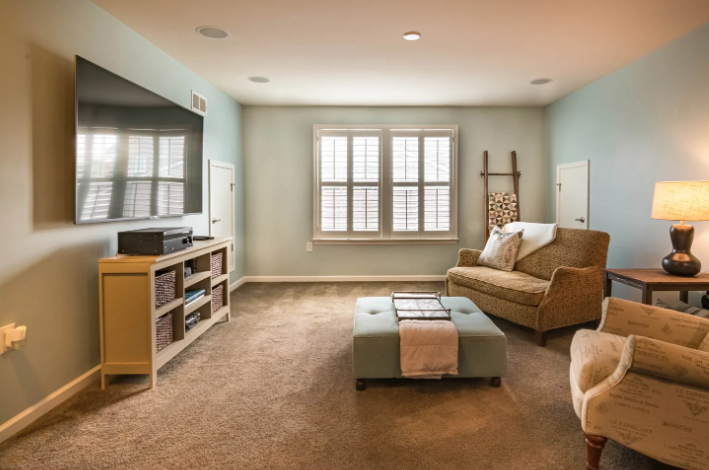
How Much Does an Air Conditioner Cost to Run Per Hour UK?
Average Running Costs Based on AC Type
The following table shows estimated hourly costs for common air conditioners in the UK:
| AC Type |
Power Consumption (kW) |
Estimated Cost per Hour (£) |
| Portable AC (8,000 BTU) |
0.7 – 1.0 kW |
£0.20 – £0.30 |
| Split-System AC (12,000 BTU) |
1.0 – 1.5 kW |
£0.30 – £0.50 |
| Central AC (24,000 BTU) |
2.0 – 3.5 kW |
£0.60 – £1.10 |
| Window AC (10,000 BTU) |
0.9 – 1.2 kW |
£0.25 – £0.40 |
- Portable AC units are common in the UK because they are cheaper and easier to install.
- Split-system ACs provide better cooling but consume more power.
- Central air conditioning is rare in UK homes due to its high installation cost and running costs.
- Window AC units are more common in commercial buildings but can be used in homes.
Factors That Affect the Running Cost of an Air Conditioner
Several factors impact how much an air conditioner costs per hour, including:
- Room Size & Insulation – Larger rooms need more cooling power, increasing costs.
- Energy Efficiency Ratings (SEER & EER) – Higher-rated units use less electricity.
- Electricity Tariffs in the UK – Prices vary by supplier and location.
- Duration of Use – Running AC for longer periods increases costs.
- Temperature Settings – Setting an AC at 18°C uses more energy than at 22°C.
By choosing an energy-efficient air conditioner and using it smartly, you can reduce electricity bills.
How Can I Reduce My Air Conditioning Costs?
Choosing an Energy-Efficient Air Conditioner
- Look for AC units with high SEER (Seasonal Energy Efficiency Ratio) ratings.
- Inverter AC units adjust cooling levels, reducing power consumption.
- Smart thermostats help control AC usage, avoiding unnecessary operation.
Best Practices to Lower AC Running Costs
- Use ceiling fans to circulate cool air more efficiently.
- Seal doors & windows to prevent cool air from leaving.
- Clean air filters regularly to maintain efficiency.
- Use timers to turn off AC when not needed.
Alternative Cooling Solutions to Save Energy
Are Air Conditioners Expensive to Run in the UK Compared to Other Countries?
Air conditioning costs are higher in the UK due to expensive electricity rates.
- UK electricity prices: £0.28 – £0.35/kWh
- US electricity prices: £0.10 – £0.15/kWh
- European electricity prices: £0.20 – £0.30/kWh
Since AC usage is lower in the UK, the overall cost impact is less than in hotter climates like the US or Australia.
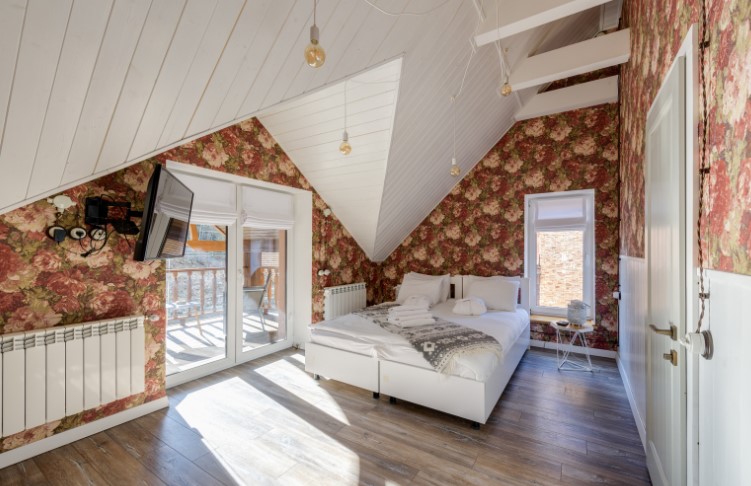
Conclusion
- The cost to run an air conditioner per hour in the UK ranges from £0.20 to £1.10, depending on unit type and power consumption.
- Portable AC units are cheaper to install but less energy-efficient than split systems.
- Running AC efficiently by adjusting thermostat settings, sealing rooms, and using fans reduces costs.
- Alternative cooling methods like blackout curtains and insulation can help lower AC usage.
Before buying an air conditioner, compare energy ratings, check your electricity tariff, and consider cost-effective cooling solutions to keep your bills low. Hope you got the answer for how much does an air conditioner cost to run per hour uk
FAQs About Air Conditioner Running Costs in the UK
1. How Much Does It Cost to Run an Air Conditioner for 8 Hours?
For a 1.5 kW split-system AC:
1.5 kW × £0.30 × 8 hours = £3.60 per day
2. Is It Cheaper to Leave an Air Conditioner On All Day?
No. Running AC all day wastes energy and increases bills. Using timers and smart thermostats saves money.
3. Do Portable Air Conditioners Use a Lot of Electricity?
Yes. Portable ACs are less efficient than split systems, using more power per cooling output.
4. What Is the Cheapest Way to Cool a Room in the UK?
- Use fans instead of AC when possible.
- Keep blinds closed during the day to reduce heat.
- Install insulation to keep rooms cooler naturally.
5. How Much Does It Cost to Run an Air Conditioner in London vs. Other Cities?
London has higher electricity rates, making AC usage more expensive than in Northern England or Scotland.

by Kanimozhi BV | Mar 12, 2025 | AC, Appliances
Air conditioning is becoming more popular in UK homes as summers get hotter.
Whether you’re looking for whole-house cooling or just need to keep a single room comfortable, installing air conditioning can be a worthwhile investment.
However, air conditioning installation costs in the UK vary widely based on factors like system type, home size, and labour costs. In this guide, we will look the following:
- How much does it cost to install air conditioning in the UK.
- The types of AC systems available and their installation costs.
- Labour fees, running costs, and planning permissions.
- How to save money on installation & maintenance.
By the end, you will know exactly what to budget for and how to choose the right air conditioning system for your home.
How Much Does It Cost to Install Air Conditioning in the UK?
The cost of installing air conditioning primarily depends on:
- Type of AC system (split, ducted, portable, or window unit).
- Labour costs (varies by installer and complexity).
- Property size and layout (larger homes require bigger systems).
- Electrical and pipework modifications.
Average Air Conditioning Installation Costs in the UK (2025 Estimates)
| AC Type |
Installation Cost (£) |
Best For |
| Portable AC (No installation) |
200 – 600 |
Small rooms, rental properties |
| Split System AC |
1,000 – 2,500 |
Single rooms or small homes |
| Ducted Air Conditioning |
3,000 – 7,000 |
Whole-house cooling |
| Window AC Unit |
800 – 1,500 |
Apartments, small spaces |
Split systems are the most common choice for UK homes due to their balance of efficiency and cost.
How Much Does It Cost to Install Air Conditioning in a UK House?
Cost Breakdown by Home Size
| Home Size |
Recommended AC Type |
Estimated Cost (£) |
| 1-Bedroom Flat |
Split system or window AC |
1,000 – 2,000 |
| 2-Bedroom House |
Split system (multi-room) |
2,000 – 4,000 |
| 3-Bedroom House |
Ducted or multi-split |
3,000 – 7,000 |
| 4+ Bedroom House |
Full ducted system |
5,000 – 10,000 |
For small flats and single rooms, window or portable AC units are cost-effective as we can cool the room without air conditioning.
Larger homes benefit from multi-split or ducted systems for even cooling.
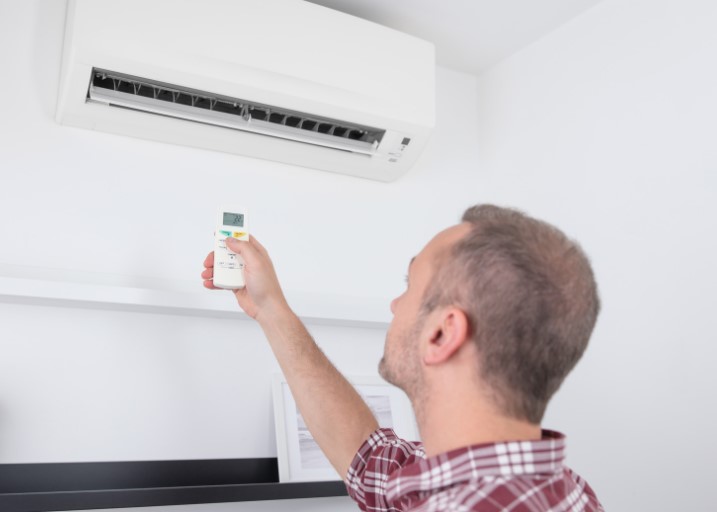
How Much Does It Cost to Install Air Conditioning in a 3-Bedroom House?
For a three-bedroom home, you have two main options:
- Multi-split system (three indoor units, one outdoor unit): £3,000 – £5,500
- Ducted system (whole-house cooling): £5,000 – £7,000+
Split systems are cheaper upfront, while ducted AC offers seamless cooling but at a higher installation cost.
Though renovating bedroom in UK will also includes installing air conditioning.
How Much Does It Cost to Install Air Conditioning in One Room?
For single-room cooling, you can choose:
- Portable AC (no installation) – £200 – £600
- Wall-mounted split system – £1,000 – £2,500 (installed)
- Window AC unit – £800 – £1,500 (including installation)
Split systems cost more initially but are quieter and more energy-efficient than portable units.

What Are the Different Types of Air Conditioning Systems and Their Installation Costs?
Split System Air Conditioning Cost
- Most common for UK homes.
- Cost: £1,000 – £2,500 (including installation).
- Best for cooling individual rooms or small homes.
Ducted Air Conditioning (Central AC) Cost
- Provides whole-house cooling via ducts in the ceiling or walls.
- Cost: £3,000 – £7,000+.
- Best for large homes needing even temperature control.
Portable Air Conditioner Cost (No Installation Required)
- Cheapest option but less efficient.
- Cost: £200 – £600.
- Best for small rooms and rental properties.
Window Air Conditioner Cost
- Requires window or wall mounting.
- Cost: £800 – £1,500.
- Best for apartments or rooms without external walls.
How Much Do Air Conditioning Installers Charge in the UK?
Labour Cost Breakdown
| Service |
Estimated Cost (£) |
| Single split unit installation |
300 – 800 |
| Multi-split system (3-4 units) |
1,000 – 2,000 |
| Ducted AC installation |
2,000 – 5,000+ |
Additional costs apply if electrical upgrades or pipework modifications are needed.
Do I Need Planning Permission to Install Air Conditioning in the UK?
Most homes do not need planning permission for air conditioning. However, there are exceptions:
- Flats, listed buildings, and conservation areas.
- Outdoor condenser units creating excessive noise.
Always check with your local council if you live in a restricted area.
What Are the Running Costs After Installing Air Conditioning?
| AC Type |
Average Running Cost per Hour (£) |
| Portable AC (8,000 BTU) |
0.20 – 0.30 |
| Split System (12,000 BTU) |
0.30 – 0.50 |
| Ducted System (24,000 BTU) |
0.60 – 1.10 |
Energy-efficient models save up to 30% on running costs over time.

How to Save Money on Air Conditioning Installation?
- Compare at least three quotes from different installers.
- Choose an energy-efficient model to reduce long-term costs.
- Install in winter when demand is lower (some companies offer discounts).
- Check for government incentives for energy-efficient ACs.
Conclusion
- Installation costs range from £1,000 to £7,000+, depending on AC type.
- Split systems are ideal for most UK homes, while ducted systems suit larger properties.
- Running costs vary, but energy-efficient models help save money.
- Always compare quotes, check installer credentials, and choose the right system for your needs.
By following the guide on how much does it cost to install air conditioning in the UK and by making the right choice, you can enjoy cool, comfortable summers without overspending.
Related Article: How to Cool a Room Without Air Conditioning?
FAQs About How Much Does It Cost to Install Air Conditioning in the UK
1. Is It Cheaper to Install Air Conditioning in Winter?
Yes. Some AC companies offer off-season discounts.
2. Can I Install Air Conditioning Myself?
DIY installation is not recommended as handling refrigerants requires an F-Gas licence.
3. How Long Does It Take to Install Air Conditioning?
- Portable AC – Immediate use.
- Split system – 4–8 hours per unit.
- Ducted system – 3–7 days.
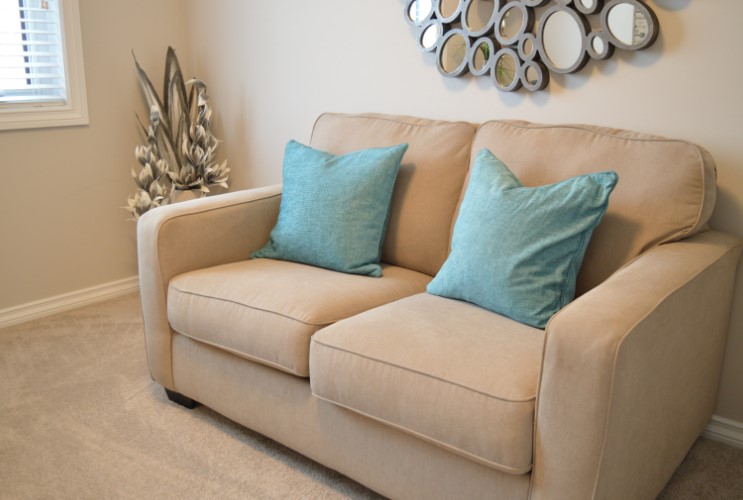
by Kanimozhi BV | Mar 11, 2025 | Couch, Interior
Getting rid of an old sofa can be a challenge, especially if you’re unsure of the best disposal options. Many would wonder, “Can I take a sofa to the tip?”
The answer depends on your local council’s waste disposal rules, the condition of your sofa, and available alternatives.
In this guide, I’ll cover whether you can take a sofa to the local tip, how much it costs, free disposal options, recycling, and alternative ways to get rid of your sofa.
Can I Take a Sofa to the Tip in the UK?
Yes, you can take a sofa to the tip (also known as a Household Waste Recycling Centre), but there are a few important things to check first:
- Does your local tip accept sofas?
Some tips have restrictions due to landfill regulations.
- Do you need a permit or booking?
Many councils now require pre-booking before visiting a recycling centre.
- Is your sofa made of restricted materials?
Some tips may refuse upholstered furniture due to fire safety regulations.
How to Check If Your Tip Accepts Sofas?
- Visit your local council’s website and search for “Household Waste Recycling Centre.”
- Look for bulky waste disposal guidelines.
- Call the tip directly to confirm before making the trip.
How to Dispose of a Sofa?
If you can’t take your sofa to the tip, here are alternative disposal options:
1. Council Bulky Waste Collection
- Most UK councils provide an offer for bulky waste collection services.
- Prices vary by council but typically range from £10 to £50 per item.
- Some councils offer free collections for low-income households.
Find your local council’s bulky waste collection service on the UK government website.

2. Donate Your Sofa
- If your sofa is in good condition (with a fire safety label), charities may collect it for free.
- Popular UK charities that accept sofa donations:
- British Heart Foundation
- Sue Ryder
- Emmaus
- Furniture Reuse Network
3. Hire a Licensed Waste Carrier
- If the council and charities won’t take your sofa, a licensed waste carrier is another option.
- Always check that the company is registered with the Environment Agency to avoid illegal fly-tipping.
How to Get Rid of a Sofa in the UK?
Can I Take a Sofa to the Local Tip?
Yes, but:
- Check if your tip accepts sofas before visiting.
- Some councils limit the number of bulky items you can dispose of each year.
- A van permit may be needed if transporting a large sofa in a commercial vehicle.
How to Get Rid of an Old Sofa for Free in the UK?
- Donate it to a charity (must have a fire safety label).
- List it on Freecycle, Facebook Marketplace, or Gumtree for someone to collect.
- Check if your council offers free bulky waste collection.

Will a Scrap Man Take a Sofa?
Most scrap metal collectors do not take sofas because they are mostly made of fabric and wood, not metal.
If your sofa has a metal frame, a scrap dealer may take it, but it’s best to call ahead and check.
Who Will Pick Up My Furniture for Free in the UK?
The following charities offer free furniture collection:
| Charity |
Free Collection? |
Requirements |
| British Heart Foundation |
Yes |
Must have a fire label |
| Sue Ryder |
Yes |
Must be in good condition |
| Emmaus |
Yes |
Dependent on local branches |
| Furniture Reuse Network |
Yes |
Check for local availability |
Get to know above the top 10 websites to buy ex-display garden furniture clearance.
Can a Sofa Be Recycled Instead of Dumped?
Yes. Instead of dumping your sofa, consider recycling options:
- Some councils offer sofa recycling schemes.
- Licensed waste carriers recycle sofa materials (wood, metal, foam).
- Recycling reduces landfill waste and helps the environment.
Check local recycling options on the Recycle Now website.
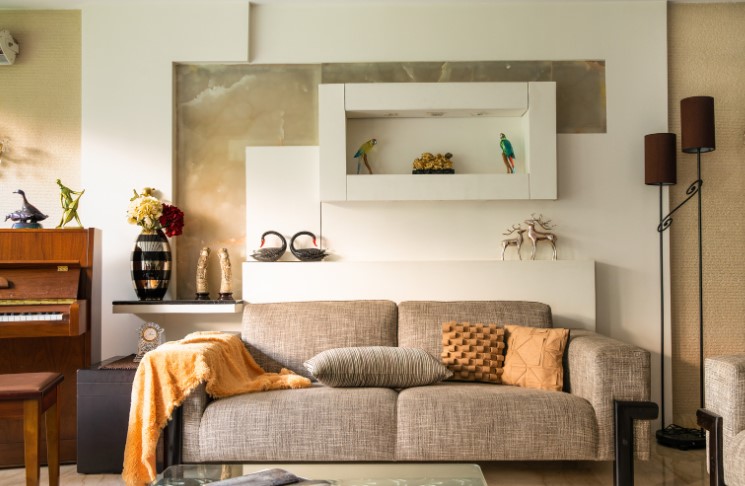
Can You Sell or Give Away a Sofa Instead?
If your sofa is in good condition, selling or giving it away is a great option.
Where to Sell or Give Away a Sofa?
- Facebook Marketplace – List it for free or at a low price.
- Gumtree – Free listings available.
- Freecycle – People looking for free furniture will collect it.
Tip: Always take clear photos and provide honest descriptions to attract buyers.
How to Prepare Your Sofa for Disposal?
Before disposing of your sofa, follow these steps:
- Check for a fire-resistant label – Required for donations.
- Disassemble if possible – Makes transport easier.
- Protect your vehicle – Use sheets to prevent dirt or damage.
Conclusion
There are many ways to get rid of an old sofa responsibly:
- Take it to the local tip (if accepted).
- Use council bulky waste collection.
- Donate to charities that offer free collection.
- Sell or give it away online.
- Recycle through licensed waste carriers.
By choosing an eco-friendly disposal method, you can reduce landfill waste and even help someone in need.
Before you dump your sofa, check if it can be reused, sold, or recycled. Here is the answer for “Can I take a sofa to the tip?”
Check your local council’s bulky waste services on the UK government website.
FAQs About Sofa Disposal
1. Can I Leave My Sofa on the Street for Collection?
No, unless you have pre-arranged a bulky waste collection with your local council. Otherwise, it could be classed as fly-tipping, which carries fines of up to £50,000.
2. What Happens If My Local Tip Refuses My Sofa?
Try these alternatives:
- Book a council bulky waste collection.
- Donate to a charity.
- Hire a licensed waste carrier.
3. Are Sofa Beds Accepted at Recycling Centres?
Some tips accept sofa beds, but you may need to remove the mattress first.
4. Can I Take a Sofa Apart Before Taking It to the Tip?
Yes. Disassembling your sofa makes transport easier and reduces disposal costs.
5. Is Fly-Tipping a Fineable Offence in the UK?
Yes. Illegal dumping (fly-tipping) can result in fines up to £50,000 and even prosecution. Always dispose of sofas responsibly.



















